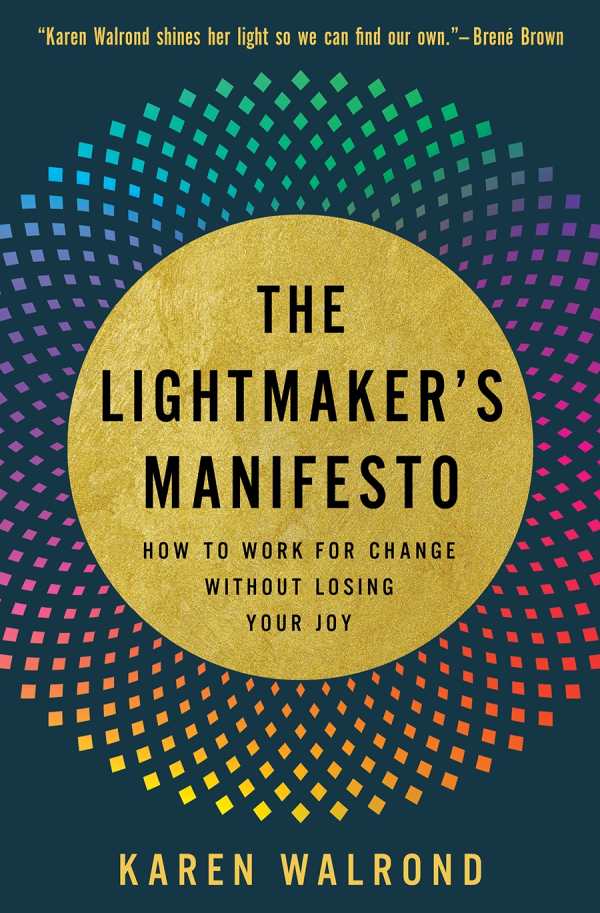The Lightmaker's Manifesto
How to Work for Change without Losing Your Joy
Karen Walrond’s The Lightmaker’s Manifesto issues a rousing call to get involved in changing the world without destroying one’s self.
Concerned with selflessness and sacrifice, this book also emphasizes self-care, which is vital both to individuals and to the world. It works to help its audience find causes that truly stir them—and to develop practices to help them flourish in their work for the long haul. It focuses on joy—both what brings joy to people, and the joy that they, in turn, derive from their activism. Its concerns are internal and emotional—heart-based, rather than concerned with mere ideals about doing what’s right. From this deep-rooted place, the book suggests ways of identifying and developing one’s gifts and skills.
Walrond also encourages her audience to see how their work impacts the causes they care about. Her inside-out approach stands to be life-giving, and to result in long-lasting success. Her whole-person view leads to the naming of self-care practices that are grouped under the Wholebeing Institute’s acronym SPIRE (spiritual, physical, intellectual, relational, and emotional), and that also emphasize the importance of having community for one’s well-being and impact.
The book’s prominent personal narratives include Walrond’s stories and those of other change makers whom she’s encountered. They are vibrant, relatable, and inspiring, and Walrond unpacks the values, implications, and themes of each well. Her work concludes with stirring mantras for encouragement, including “I listen” and “I honor my own inner wisdom,” complemented by a practical manual for putting the book’s self-care strategies into practice. Prompts for journaling and identifying personal values, and charts to track SPIRE self-care practices, are included.
The Lightmaker’s Manifesto is a self-care guidebook designed to bring light to change makers and, by extension, the world.
Reviewed by
Melissa Wuske
Disclosure: This article is not an endorsement, but a review. The publisher of this book provided free copies of the book to have their book reviewed by a professional reviewer. No fee was paid by the publisher for this review. Foreword Reviews only recommends books that we love. Foreword Magazine, Inc. is disclosing this in accordance with the Federal Trade Commission’s 16 CFR, Part 255.

